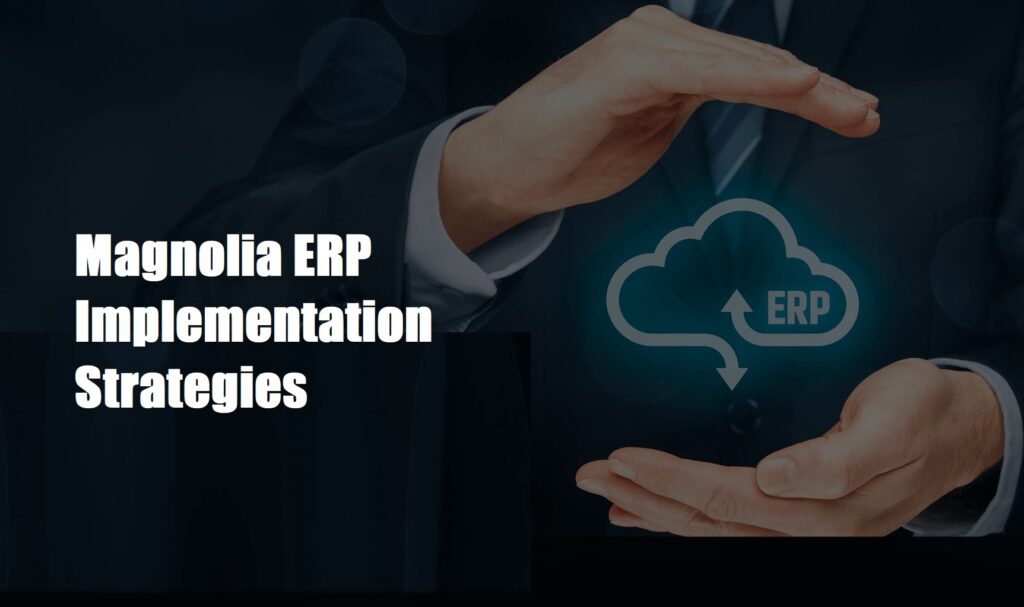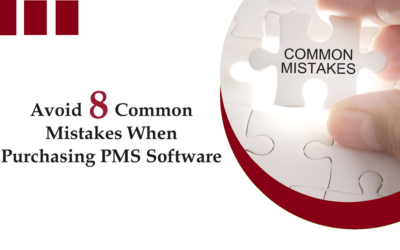
Enterprise Resource Planning (ERP) systems play a crucial role in streamlining business processes, improving efficiency, and enhancing decision-making capabilities. Among the many ERP solutions available, Magnolia ERP has emerged as a powerful and comprehensive tool for organizations across various industries. However, implementing an ERP system like Magnolia can be a complex undertaking. In this blog post, we will explore the best practices, challenges, and success factors involved in Magnolia ERP implementation.
Best Practices for Magnolia ERP Implementation
Clearly Define Objectives:
Before embarking on the implementation journey, it is vital to establish clear objectives and goals. Define the specific business processes and functionalities that you aim to improve or automate with Magnolia ERP. This will help align the implementation strategy with the desired outcomes.
Thorough Planning and Project Management:
Implementing an ERP system requires careful planning and effective project management. Create a detailed implementation plan that outlines the timeline, resource allocation, and milestones. Assign a dedicated project team and ensure effective communication and coordination throughout the process.
Evaluate and Customize:
Conduct a thorough evaluation of your existing processes and identify areas that require customization within the Magnolia ERP system. Tailor the solution to fit your organization’s unique needs and ensure that it aligns with your business workflows.
Data Cleansing and Migration:
Data is the lifeblood of any ERP system. Prior to implementation, clean and validate your existing data to eliminate duplicates, errors, and inconsistencies. Develop a robust data migration strategy to ensure a seamless transition from legacy systems to Magnolia ERP.
Training and Change Management:
ERP implementation involves a significant change for employees. Provide comprehensive training to end-users to ensure they understand the system’s features and benefits. Additionally, establish effective change management strategies to address any resistance to change and foster a positive implementation experience.
Challenges in Magnolia ERP Implementation
Complexity:
Magnolia ERP is a comprehensive ERP solution that covers a wide range of business processes. The complexity of implementing such a system can be a challenge for organizations, especially those with limited IT resources and expertise. It is crucial to have a skilled implementation team or seek assistance from experienced consultants.
Organizational Alignment:
ERP implementation often requires changes in business processes and workflows. Resistance to change and lack of alignment within the organization can pose significant challenges. To overcome this, involve key stakeholders from different departments in the planning and decision-making process. Create a culture of collaboration and communicate the benefits of the new system effectively.
Data Integration:
Integrating Magnolia ERP with existing systems and third-party applications can be complex. Data mapping, ensuring data integrity, and managing the synchronization of data across systems require careful consideration. Invest in robust integration tools or seek professional assistance to ensure seamless data flow.
Success Factors in Magnolia ERP Implementation
Strong Executive Sponsorship:
Active support and involvement from top-level executives are critical to the success of any ERP implementation. Executive sponsorship provides the necessary resources, resolves conflicts, and reinforces the importance of the project across the organization.
Engaged Project Team:
Assemble a dedicated project team with the right mix of technical and functional expertise. The team should have a deep understanding of business processes and be committed to the success of the implementation. Encourage collaboration, provide necessary training, and empower team members to make informed decisions.
Effective Communication:
Clear and consistent communication is essential throughout the implementation process. Communicate project milestones, progress, and changes to all stakeholders regularly. Address concerns and provide timely updates to ensure transparency and manage expectations.
Continuous Testing and Iteration:
Testing is a critical phase in ERP implementation. Regularly conduct comprehensive testing to identify and rectify any issues or gaps in the system. Implement an iterative approach, allowing for continuous improvement and refinement throughout the implementation process.
Post-Implementation Support and Optimization:
Once Magnolia ERP is deployed, ensure adequate post-implementation support to address any issues or challenges that may arise. Regularly review and optimize the system to align with evolving business needs and emerging technologies.
Conclusion
Implementing Magnolia ERP can bring significant benefits and revenue to organizations, but it requires careful planning, coordination, and execution. By following the best practices outlined in this blog post and addressing the associated challenges, organizations can increase their chances of a successful Magnolia ERP implementation. Remember that each implementation is unique, and organizations should tailor their strategies to fit their specific requirements. With proper planning, effective change management, and a dedicated project team, Magnolia ERP can be a powerful tool to drive growth and efficiency within your organization.





0 Comments